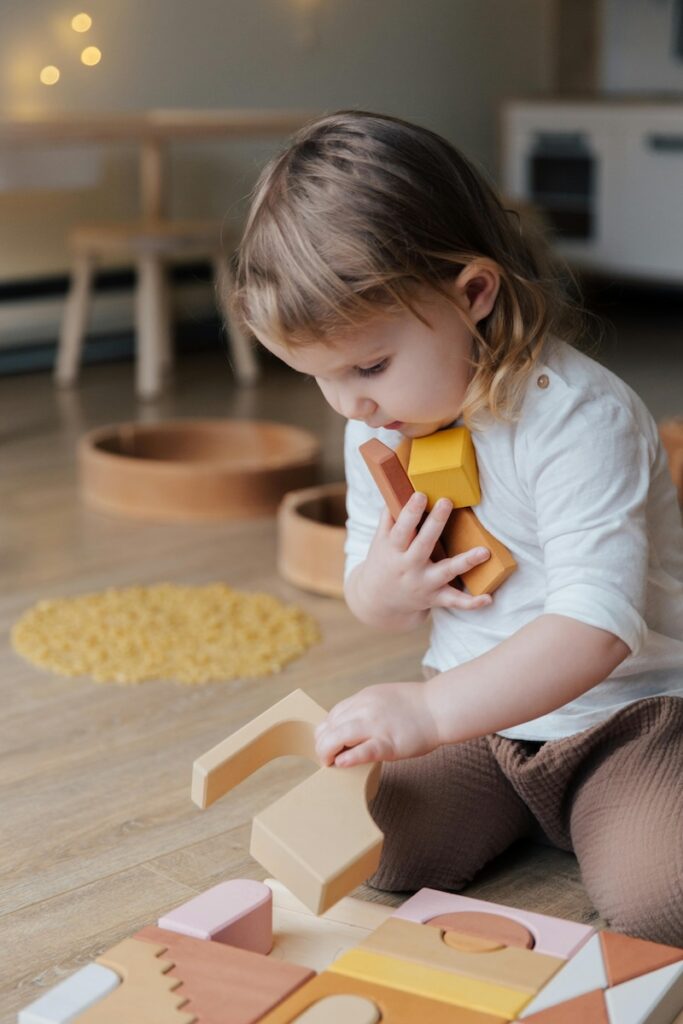As parents, we often marvel at our children’s ability to become completely absorbed in their surroundings. Whether it’s the flicker of a candle flame, the swaying of tree branches, or the sound of distant traffic, infants and toddlers can be deeply engrossed in what we might consider mundane. However, this natural ability to focus can be easily disrupted, impacting their attention span and overall development. Here’s how to nurture and sustain your child’s ability to focus and maintain attention.
Understanding the Importance of Focus
Developing a strong attention span is crucial for children as it lays the foundation for learning, problem-solving, and achieving long-term goals. The early years are particularly formative, and creating an environment that supports focus can significantly enhance your child’s capacity to concentrate.

Creating a Calm and Stimulating Environment
A safe and cozy environment is paramount. Babies and toddlers need a designated space where they can explore and play without constant interruptions or safety concerns. This might start with a crib or playpen and evolve into a gated play area as they grow. Such spaces should be free of hazards and filled with simple, open-ended toys that encourage exploration and experimentation.
Avoid overstimulation. While it might be tempting to fill your child’s environment with colorful, noisy toys, these can often overwhelm them. Simple objects like a cloth napkin, a wooden spoon, or a ball can capture a child’s interest far more effectively than complex, single-function toys. These items invite children to use their imagination, explore different textures, and develop their problem-solving skills.
Limiting Screen Time
Television and videos can significantly undermine a child’s developing attention span. Screens often overwhelm and captivate a child’s focus in ways that are passive rather than active. Instead of engaging with their environment and flexing their concentration muscles, children become passive observers. Limiting screen time, especially in the first two years, can help children develop a healthier, more active form of engagement with their surroundings.
Observing and Valuing Their Interests
One of the most effective ways to nurture focus is by observing your child and valuing their interests. Instead of interrupting their play or directing their activities, allow them to choose what captures their attention. Babies are naturally curious and will engage deeply with the things they find intriguing. By respecting their choices and providing opportunities for uninterrupted exploration, you can help them develop a longer attention span.
Incorporating Routine and Structure
Consistency is key to building focus. Establishing a daily routine that includes regular times for play, meals, and sleep can help your child feel secure and understand what to expect. This predictability reduces anxiety and allows them to engage more deeply in their activities. For example, having a dedicated time each day for quiet play can help your child develop the habit of focusing on a task without interruptions.

Engaging in Interactive Activities
Interactive activities such as reading together, singing, or playing simple games can significantly enhance your child’s ability to focus. These activities not only engage their attention but also foster a sense of connection and security. For instance, reading to your child every day can help them develop a love for books and stories, encouraging them to focus and listen attentively.
Encourage participation in daily routines. Tasks like diaper changes, baths, and mealtimes are opportunities for your child to be actively involved rather than distracted. Including them in each step and explaining what you are doing helps them feel part of the process and keeps their attention on the task at hand.
Being Mindful of Interruptions
It’s essential to be mindful of how often we interrupt our children. Every time we break their concentration, we’re training them to expect and tolerate distractions. Before engaging with your child, take a moment to observe what they’re doing. If they’re deeply engrossed in an activity, consider whether the interruption is necessary. This mindfulness helps foster a culture of respect for their focus and concentration.
Understanding When Not to Encourage Distraction
In our busy lives, it’s easy to distract a child to “get the job done.” However, constantly using distraction tactics, such as giving a toy during a diaper change, can train children to expect and seek distractions. Instead, involve them in the activity. Let them hold a clean diaper or help with simple tasks. This approach not only keeps their attention but also teaches them about the process and encourages cooperation.
Cultivating a strong attention span in your child is about creating a nurturing environment, respecting their natural interests, and minimizing unnecessary distractions. By providing safe spaces, limiting screen time, and engaging in interactive activities, you can support your child’s ability to focus and explore the world around them. Remember, the ability to concentrate deeply is a skill that will serve them well throughout their lives, fostering creativity, problem-solving, and resilience. So, the next time you see your child engrossed in play, take a step back, observe, and appreciate the incredible learning taking place.

Leave a Reply